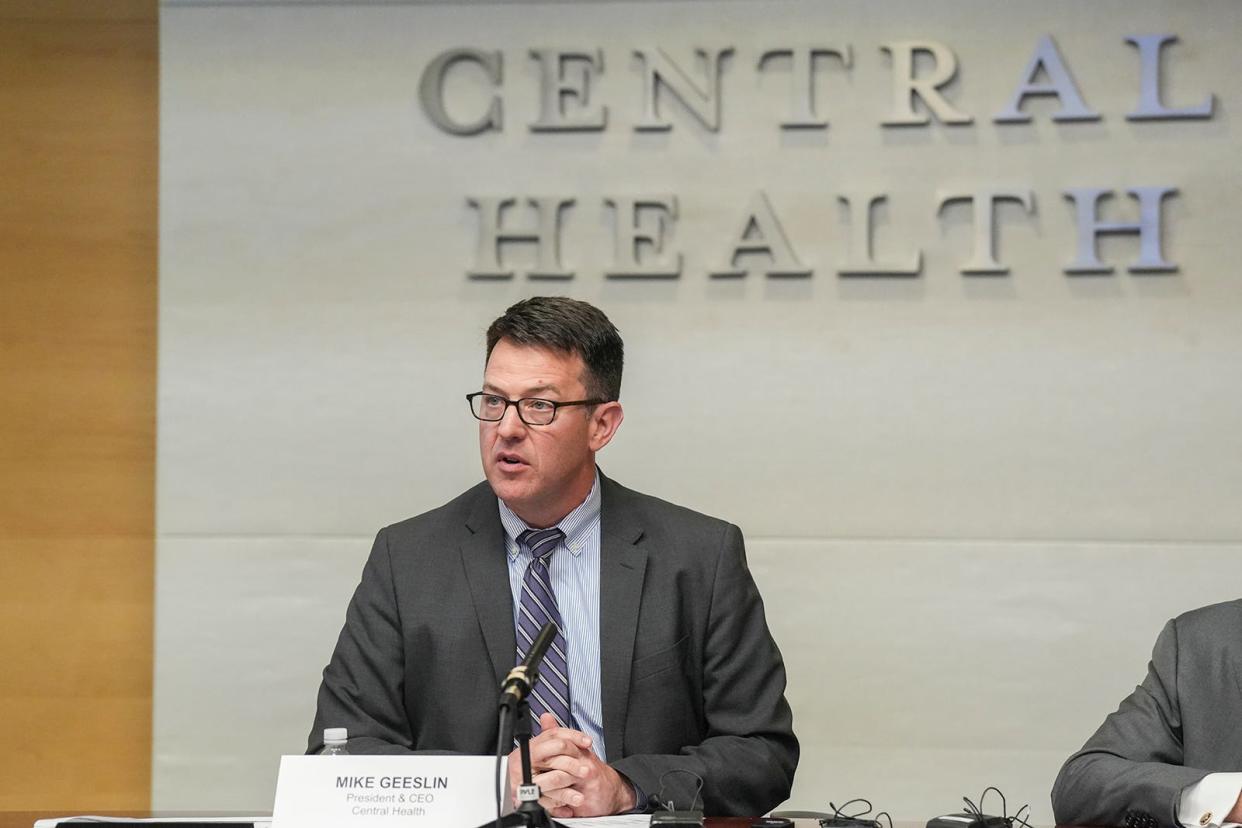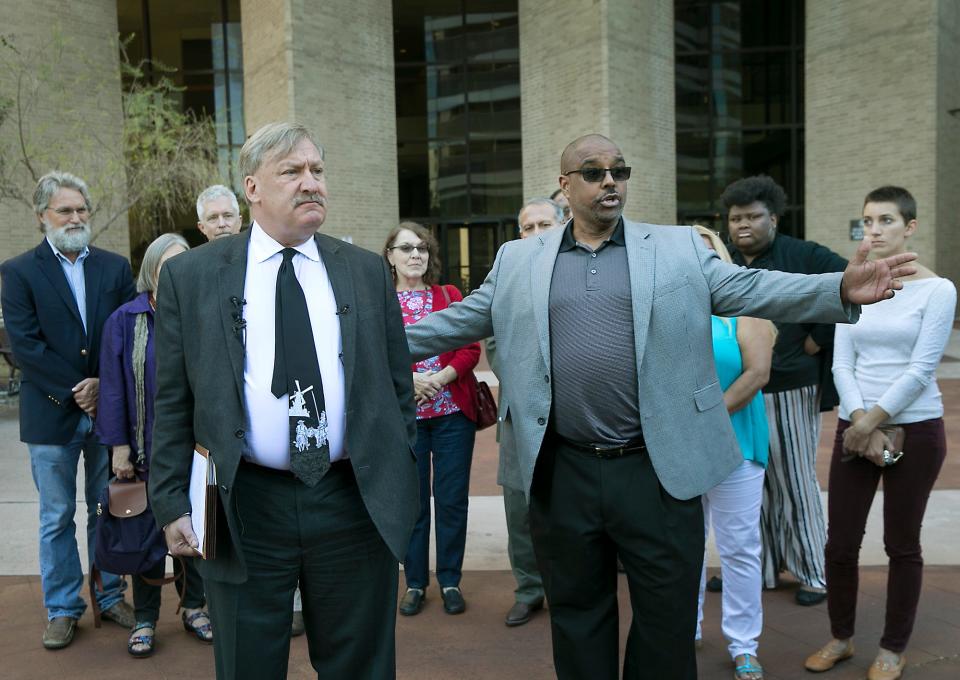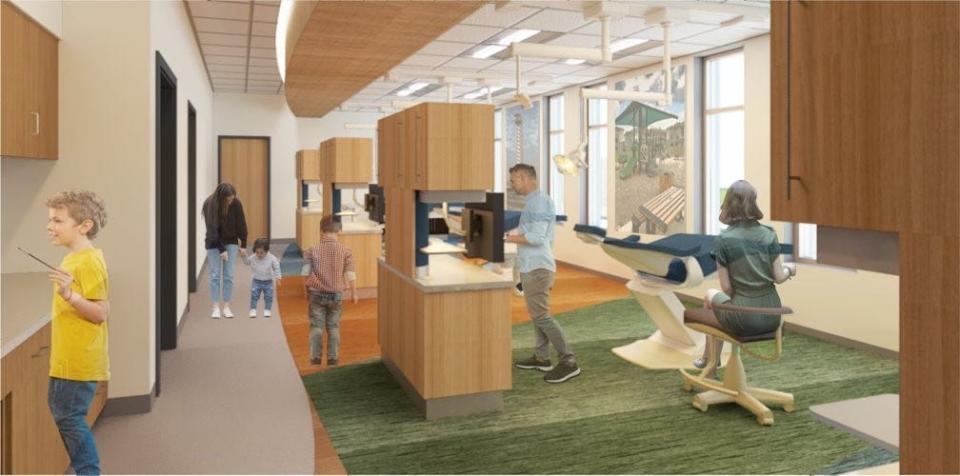Central Health proposes $744.2M budget. How much will property taxes increase if approved?

Central Health will bring its 2024 fiscal year budget for approval to the Travis County Commissioners Court on Tuesday along with a proposed property tax increase.
Because the hospital district for Austin and Travis County is made up of appointed board members, its board cannot legally set a tax rate or budget without the approval of the elected commissioners.
Central Health's purpose is to provide health care for people at or below 200% of the federal poverty level. For a family of four, that is an annual income below $60,000.
The financing of Central Health has been questioned by the Commissoners Court and community groups in the past and is the subject of a 2017 lawsuit that is ongoing.
Travis County commissioners ordered a performance audit of Central Health last year, but work by audit, tax and advisory firm Mazars USA to produce the audit, at a cost of $845,200, has not yet begun, Travis County Judge Andy Brown said last week.
"I don't see a lot of progress. I see a lot of questions," former state Sen. Gonzalo Barrientos said during the Commissioners Court meeting last week. He has been one of the critics of Central Health. "Some of those questions ought to be answered now before significant votes are taken on the people's money."
An uneasy partnership: Ascension Texas sends new letter to Central Health as partnership continues to sour

How much would my property taxes increase?
Central Health is proposing a 6.5% property tax increase of 10.0692 cents per $100 valuation. Last year the rate was 9.8684. It's an increase from $422.29 annually to $478.57 for the average home in Austin, appraised at $475,286.
Why does Central Health say it needs a tax increase?
The 2024 budget has expenses and income of $744.2 million, an increase from 2023's $628.5 million
The increase in the tax rate is "so we can continue to build out a health safety net system," Central Health CEO and President Mike Geeslin told the commissioners last week.
Central Health is beginning to enact its health equity plan to close the gap in services for minorities and people at or below 200% of poverty level, Geeslin explained.
"Everything we do is based on that lens," Central Health Chief Medical Officer Alan Schalscha said at a recent Central Health board meeting. "Where are the gaps in care that exist?"
Doesn't Central Health have a huge reserve?
During the budget presentation last week, Commissioner Brigid Shea said: "I'm puzzled as to why you continue to need tax increases when you have so much money in the budget. What are you doing with the money?"
Central Health has $455.3 million in reserves, but even with a 6.5% property tax increase, it expects to spend down its reserves to $268.6 million by 2030 because of its health equity plan and the opening of clinics.
Some critics have said Central Health has kept its reserves high to build its own hospital to replace its contract with Ascension Texas.
Geeslin told commissioners, "Those reserves are for funding health care, not for taking over a hospital."
The commissioners also questioned the amount of money budgeted each year compared with what Central Health spends. Last year, it budgeted $491.4 million in health care delivery and spent only $147.4 million. In this year's budget, it has $606.3 million for health care delivery but expects to spend $222.8 million. Central Health expects to start the 2024 fiscal year budget next month with a $407.7 million balance, not including reserves.
How many people does Central Health serve?
Last year, it served 152,500 patients, and it expects to grow to 162,400 by 2025.
It enrolled 101,643 people in its Medical Access Program and Medical Access Program Basics, which are similar to an insurance program for people with low incomes, or sliding fee scale programs.
It expects to double enrollment in its Affordable Care Act insurance program, Sendero, next year from 2,000 people to 4,100.
Growing care: Central Health raising $100 million to fund respite care clinic, renovations amid audit

What services will Central Health add in 2024?
The 2024 fiscal year is when several major projects will begin, including the expansion of specialty care at the Rosewood-Zaragosa Clinic and the opening of clinics at Del Valle and Hornsby Bend. Central Health also will open up a Patient Navigation Center.
The 2024 budget includes:
Expansion from 333.7 full-time employee positions to 530.5. Many will serve the new clinics and navigation center or help enroll more people in Central Health programs.
An $18.4 million increase to $148.3 million in purchased health care services from groups such as CommUnityCare, Lone Star Circle of Care and UT Health Austin. This increase includes money for homeless street medicine, mobile clinic teams, medical respite for people leaving the hospital and substance use disorder treatment.
A $23.6 million increase in direct health care in Central Health's clinics to $29.3 million. This includes specialty care at Rosewood-Zaragosa Clinic, adding programs for chronic illnesses such as heart failure and kidney disease, establishing a new transitions of care team, expanding its medical respite staffing with an eye toward opening its own medical respite center, and offering more patient support services such as transportation and translation.
A $39.6 million increase in health care operations and support, including for the opening of clinics at Hornsby Bend and Del Valle, and adding staff to its enrollment team.
A $6.5 million increase in administration, which will include a new CEO after Geeslin's expected retirement at the end of the year.
$35 million to the University of Texas Dell Medical School. This has been controversial because there are questions about whether it is being used to serve people at or below 200% of poverty level, but it was approved by voters in 2012.
$2.74 million in legal fees, about the same as in 2023.
$2.4 in consulting fees, up almost $800,000 from 2023, or the cost of the performance audit.
$7 million in emergency funding to Integral Care, the mental health provider for Travis County, to help the agency avoid layoffs due to an $8.6 million shortfall.
$500,000 to expand coverage days at the Black Men's Health Clinic at CommUnityCare.
$125,000 to start a health conference for Latino families.
$6 million to shore up Sendero's contingency fund.

This article originally appeared on Austin American-Statesman: Central Health proposes $744.2M budget, property taxes increase

